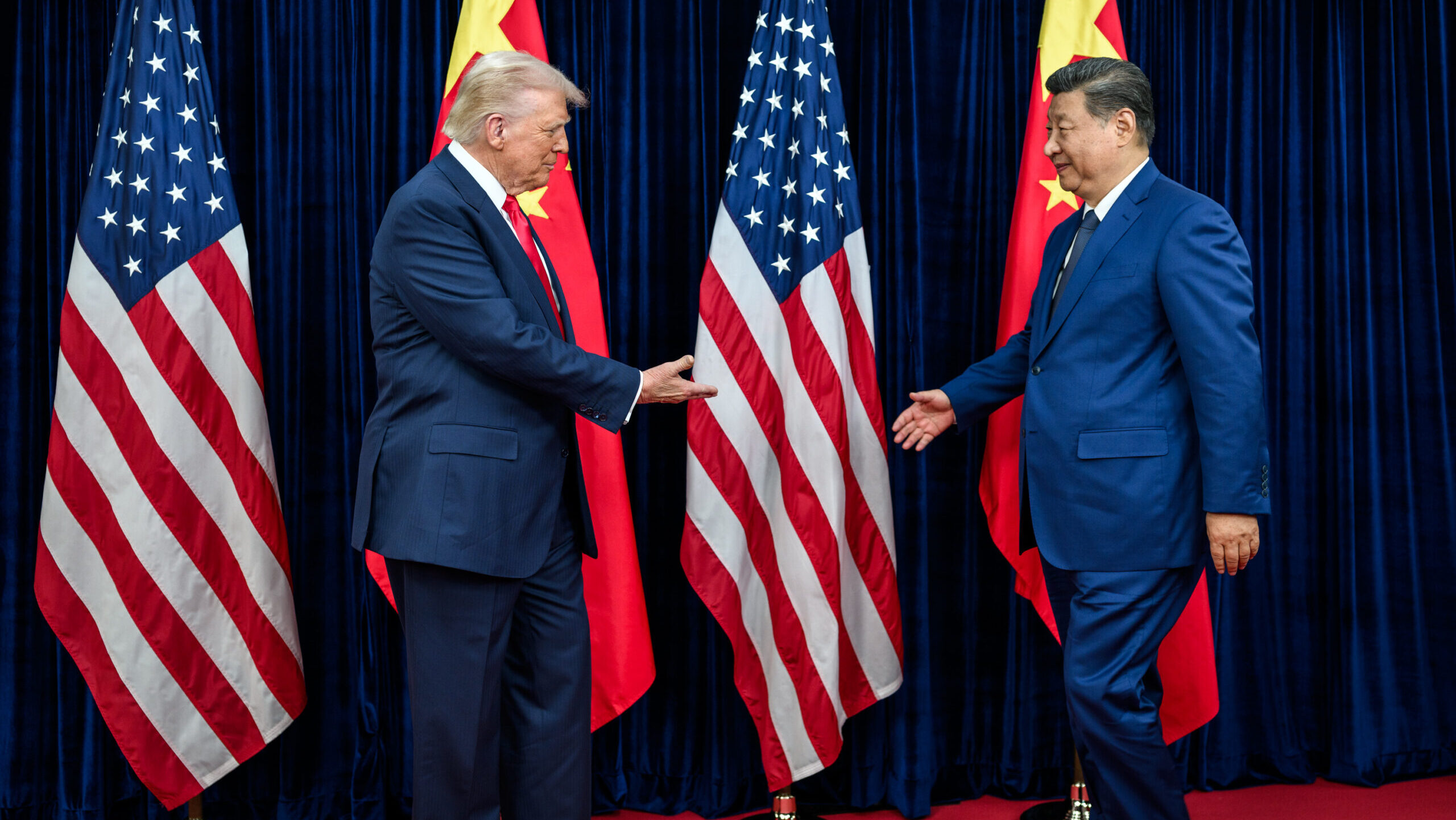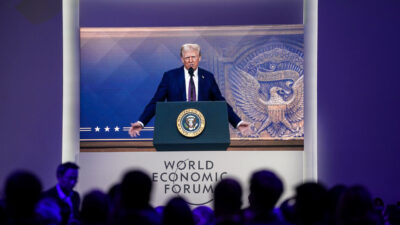Trial Truce: US, China Negotiate Yearlong Trade Détente
The United States agreed to reduce broad tariffs on Chinese imports by 10 percentage points, bringing them to 47%.

Sign up for smart news, insights, and analysis on the biggest financial stories of the day.
To hear the president tell it, 11 out of 10 doesn’t begin to describe what a win these trade talks have been. He put it at 12.
The proclamation came on Thursday morning, following his long-awaited summit with Chinese leader Xi Jinping in Busan, South Korea, during which the two world leaders brokered a trade war truce that they said would last a year.
Soybean Diplomacy
The agreement, even with a defined expiration date, did turn down the heat somewhat. The US agreed to reduce broad tariffs on Chinese imports by 10 percentage points, bringing them to 47%, still a historically high rate, but a notable de-escalation. Both sides said they would walk back the port fees imposed on each other’s ships. The US also agreed to a one-year pause on export controls that had been imposed in September on thousands of subsidiaries of previously blacklisted Chinese companies. China, for its part, is back to buying US soybeans.
In other words, relative stability is here (for now). But when the two sides meet again after another spin around the old Gregorian, fundamental issues will still need to be resolved. China backed off its trade restrictions on rare earth minerals on Thursday, but it will likely still maintain the trump card a year from now. We say likely, because one year could be enough time for the rest of the world to find a way to make the rare materials a little, well, less rare. Unsurprisingly, moves are already being made to crack China’s near-monopoly on the critical supply chain:
- On Wednesday, Bloomberg reported that the Group of Seven nations are preparing to announce as soon as today a critical minerals alliance meant to curb China’s influence over the market. It comes after the US has already staked out minerals deals with Canada and Australia.
- Still, some are seeing China as having gained the upper hand through negotiations so far: “China must feel more satisfied than the US about where it is compared to the beginning of 2025” after identifying a “potent leverage tool through rare earths export controls,” Eurasia Group’s Practice Head for China David Meale wrote in a note to clients seen by Bloomberg on Thursday.
Market Watch: Markets hardly stirred on the trade war truce news, with the S&P 500 falling nearly 1%. “The much-anticipated US-China trade agreement showed both sides willing to step away from recent escalations, but not willing to stand down from a longer-term competition,” Paul Christopher at Wells Fargo Investment Institute told Bloomberg.











